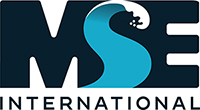CLINSH inland waterways project update Summer 2021

CLINSH is a European consortium promoting clean inland waterway transport. Within CLINSH Dutch, Belgian, German and English public and private organizations work together, including MSE International. The main objective of CLINSH is to improve air quality in urban areas by accelerating emission reductions in Inland Waterway Transport.
The CLINSH project is coming to an end and the results will be disseminated at a the project's final conference which will take place 25th November 2021 in Rotterdam. It is hoped that this will be a physical conference as much as possible and more information will follow.
The main achievements of the CLINSH project have been as follows:
Analysis monitoring data
The Nox emission data has been continuously collected on 43 ships over a lengthy period, together with other relevant data such as oxygen, pressure, fuel consumption, sailing speed and position; this has enabled so-called emission factors to be derived for the various techniques and fuels. These factors describe the relationship between the engine power and the NOx emissions per ship and are aggregated per technology or fuel. Reference measurements were carried out for particulate matter (PM) based on the E3 measurement cycle. Because this resulted in a more limited number of measurement data, these measurements were mainly used to determine the degree of emission reduction and the emission factors were also determined with the help of other studies and literature.
Fleet scenarios have been drawn up based on the emission factors and data from the inland shipping fleet in general and the shipping movements (including based on AIS registrations). The expected emissions and emission reductions for the coming years have been modeled using these scenarios and the derived emission factors. Based on this, the expected air quality is calculated and mapped for several relevant areas, such as the ports of Rotterdam and Duisburg.
Shore power
Several shore power installations have been realized within CLINSH. Based on experiences with these installations and information from other studies, the (potential) effect of shore power installations on air quality in port areas has been calculated. In addition, so-called energy scans are carried out in the ports of Antwerp and Ghent, whereby an inventory is done in cooperation with participating inland vessels of the technical adjustments that might be needed on the ships to use the shore power installations. An inventory is also made of other obstacles skippers see themselves for this. The aim is to encourage the use of shore power.
Final report with recommendations
During the summer months the draft final report will be finalized. In this report all results will be described and the policy and other recommendations will be formulated. This report will be discussed in a CLINSH consortium meeting that will (when possible) take place in Ghent in mid-September.
For more information on the CLINSH project please visit: https://www.clinsh.eu
More information from the project including a new method to estimate emission quantities at berths of inland barges can be viewed here.
And details of three new energy-efficient tugs at the Port of Antwerp - one of the CLINSH partners - can be read about here.


